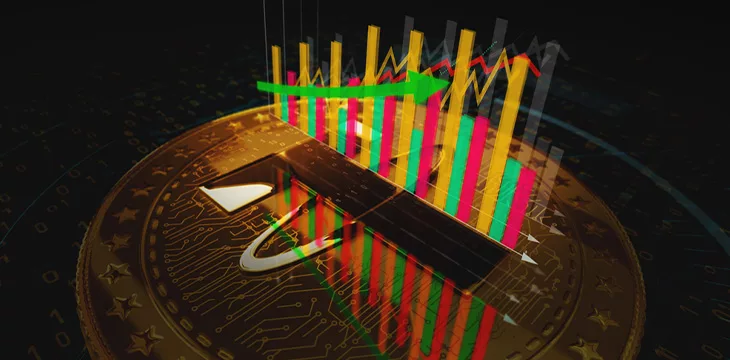|
Getting your Trinity Audio player ready...
|
A new report by ratings firm Moody’s has revealed that the top 25 stablecoins have depegged over 600 times in 2023, shedding light on just how unstable stablecoins are.
Between January and September, there were 1,914 depegs. Large-cap stablecoins, including Tether, USDC, and DAI, accounted for 609, the report by Moody’s Analytics revealed. This year’s depegs are projected to break last year’s record of 707 large cap depegs.
The report throws into question the stability of stablecoins. While they now account for over $125 billion and boast seven million holders, stablecoins remain a controversial sector rife with fraud and crime.
Market leader Tether has been convicted of financial crimes and fined tens of millions of dollars in the United States. Second-placed USDC has depegged to $0.86 this year and remains cagey about its reserves. Some, like UST, have collapsed catastrophically and led to the loss of billions of dollars. And yet, stablecoins are growing daily, with new entrants like PayPal (NASDAQ: PYPL), which launched PUSD in August.
Moody’s AI tool to predict stablecoin depegging
Moody’s also announced the launch of its Digital Asset Monitor, an artificial intelligence (AI)-powered tool for predicting probable stablecoin depegs within a “24-hour horizon.” It will track the top 25 stablecoins, including USDC, USDT, TUSD, and PayPal’s PUSD, which account for 92% of the stablecoin market cap.
“However, given ongoing volatility in the asset class, we saw substantial demand from our customers to fill a gap in this space with a comprehensive risk assessment tool for digital assets. The tool was built in a year using agile-development frameworks to address customer needs,” commented Yiannis Giokas, Moody’s product innovation director.
The tool will consider on-chain and market factors, including a stablecoin’s market and liquidity dynamics and the quality of its reserves, to determine its depegging probability. It will also factor in the issuer’s stability and the reserve custodians.
“We are committed to producing best-in-class research and insights to allow our customers to identify, measure, monitor, and manage risk leveraging our unique data, analytics, and expertise. Our customers are increasingly exploring the broader DeFi space, and we are exploring ways to support them,” added Giokas.
Moody’s defines depegging as stablecoin price fluctuations by more than 3% in a 24-hour period. But even this has been contested; some stablecoin issuers use different definitions, which give the stablecoin more wiggle room, reducing the events that qualify as depegs and giving the token an illusion of stability.
A critical factor in the depeggings is the stablecoin reserves. The most prominent player (Tether) continues to dance around questions about their reserves. Others like Binance have admitted that their systems for maintaining the peg have “not always been flawless.”
Blockchain investigators discovered that in 2020 and 2021, BUSD—then the third-largest stablecoin at over $16 billion—recorded over $1 billion in discrepancies between BUSD and its reserve assets on multiple occasions.
In another report last month, Moody’s noted that these constant depegs are eroding trust in stablecoins.
“When a handful of large investors can cause the most prominent stablecoins to deviate from their intended value, it casts doubt on stablecoins’ liquidity and on their long-term sustainability,” the report noted.
Centi: Bridging digital money and traditional banking

 08-16-2025
08-16-2025 





